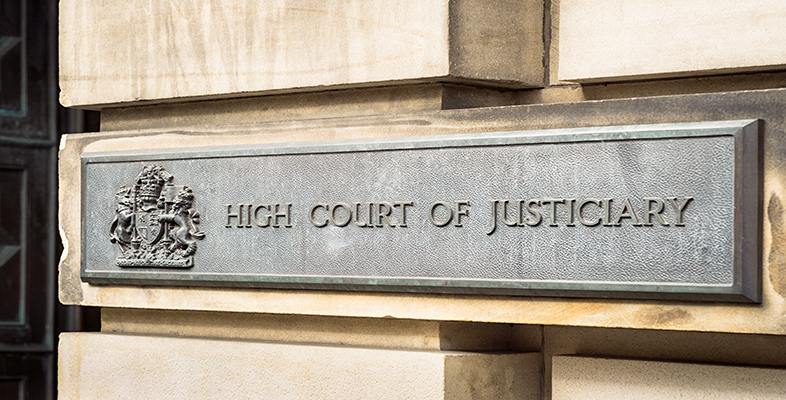1.3.2 The role of an Outer House judge
An Outer House judge writes:
‘Outer House judges sit at ‘first instance’, which means they hear cases that have not previously been to court – pre-trial hearings, civil proofs in the Court of Session and criminal trials in the High Court. The work involves presiding over a wide variety of cases and also sitting in different courts around Scotland.
Most of the time, I am based in Edinburgh, hearing two or three weeks of criminal cases for every one week of civil work in the Court of Session. On those days, each morning begins with the short cycle to Parliament House. Civil proofs are heard in the same building as my chambers and usually last up to four days. Criminal trials take place in the Lawnmarket courtroom, a short walk up the High Street. A brief trial can finish within a week but cases are more likely to last around 10 days. The most complex cases, for instance some of those involving fraud, can take several months.
Sitting on the Bench for criminal trials is rewarding, though it also brings challenges. Hearing a case with a jury is a discipline in itself – maintaining courtesy and formality in the court while ensuring that jurors are not given any inappropriate information. It can be very tiring for the jury – and the judge – to concentrate for long periods on evidence that is sometimes disturbing. But, in my experience, jurors show considerable attention to detail and produce common sense verdicts.
The atmosphere is often tense and emotional, particularly when supporters and family members of the accused and victims are in court. However, witnesses – along with those watching proceedings – deserve credit for remaining remarkably dignified during most trials.
As well as hearing cases in Edinburgh, High Court judges also go ‘on circuit’ around the country. Packing up your belongings and working elsewhere in the country for a week provides some variety, though it is also a solitary existence. To remain entirely detached from the cases they are hearing, judges are expected to stay in different accommodation even from the court officials who also travel on circuit.
Whether dealing with criminal or civil cases, in Edinburgh or elsewhere, sitting on the Bench is no nine-to-five job. Other responsibilities – usually carried out in the evenings or at weekends – include writing opinions, attending meetings and functions, giving presentations and completing training requirements. But that is not a complaint about the demands of the job – it is a huge privilege to be judge in the supreme courts of Scotland.’
